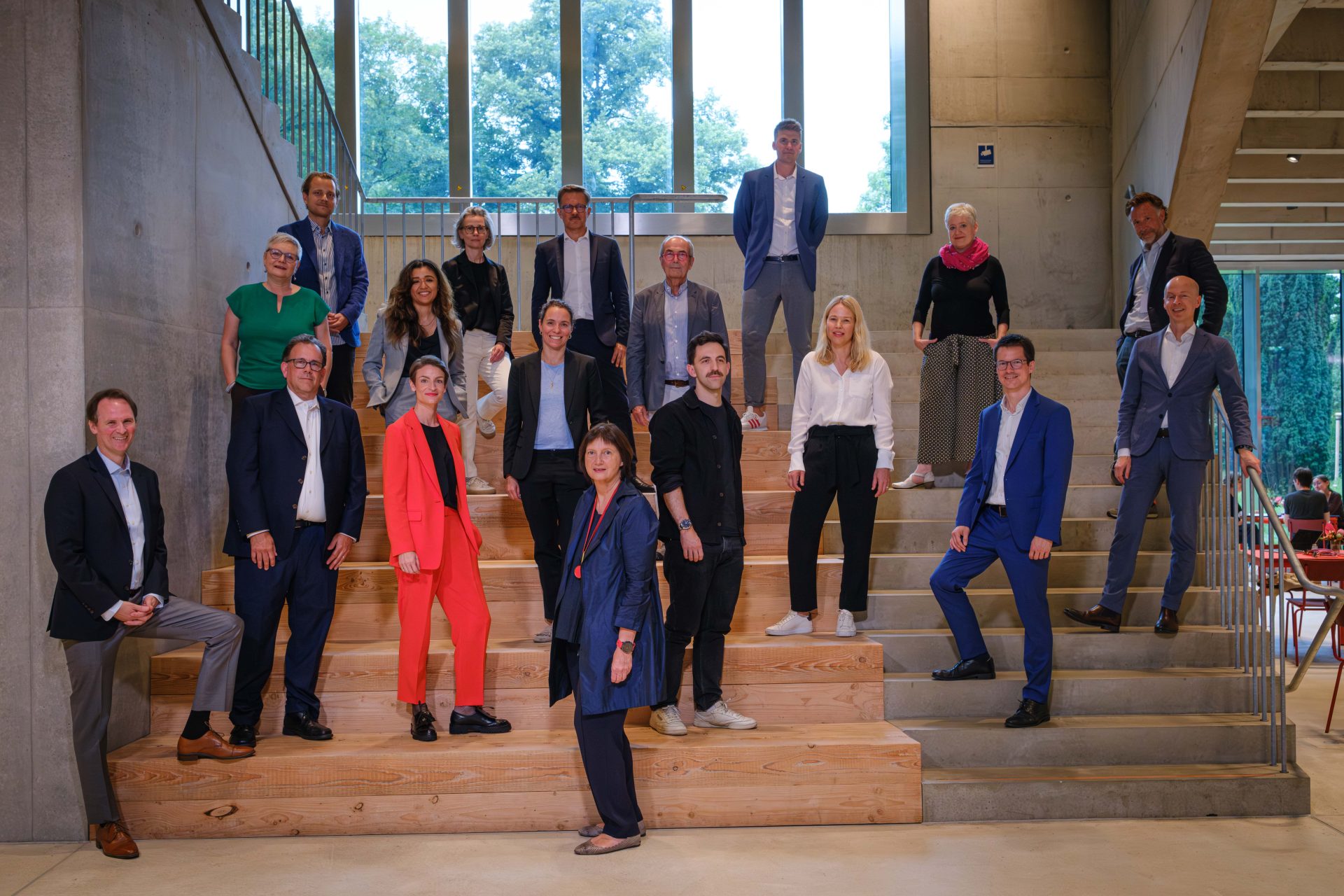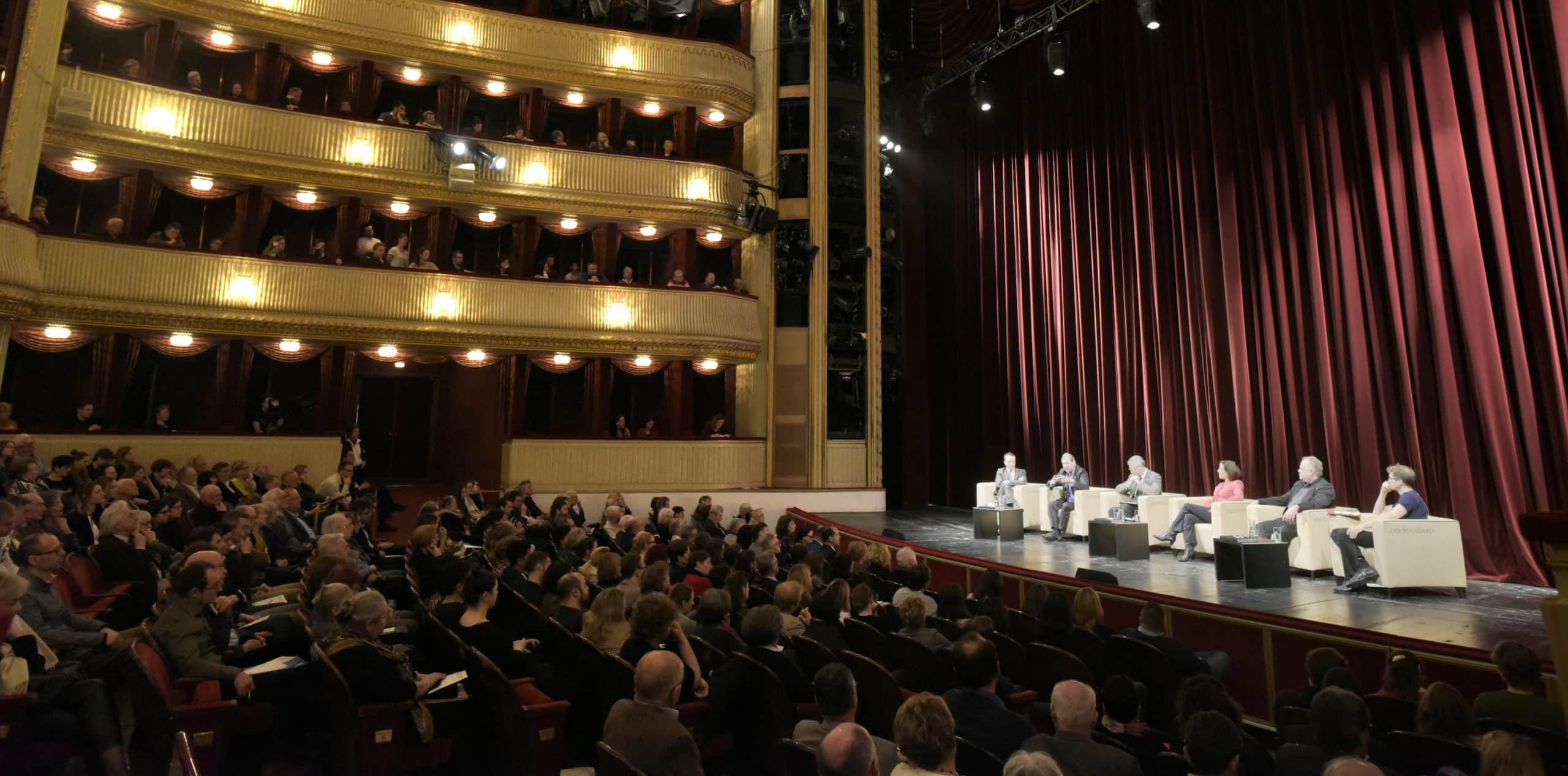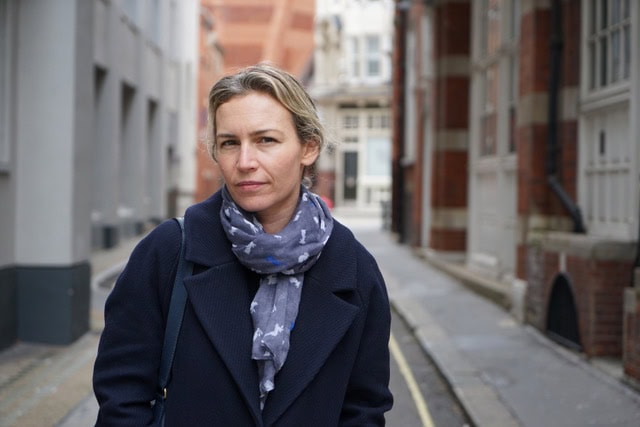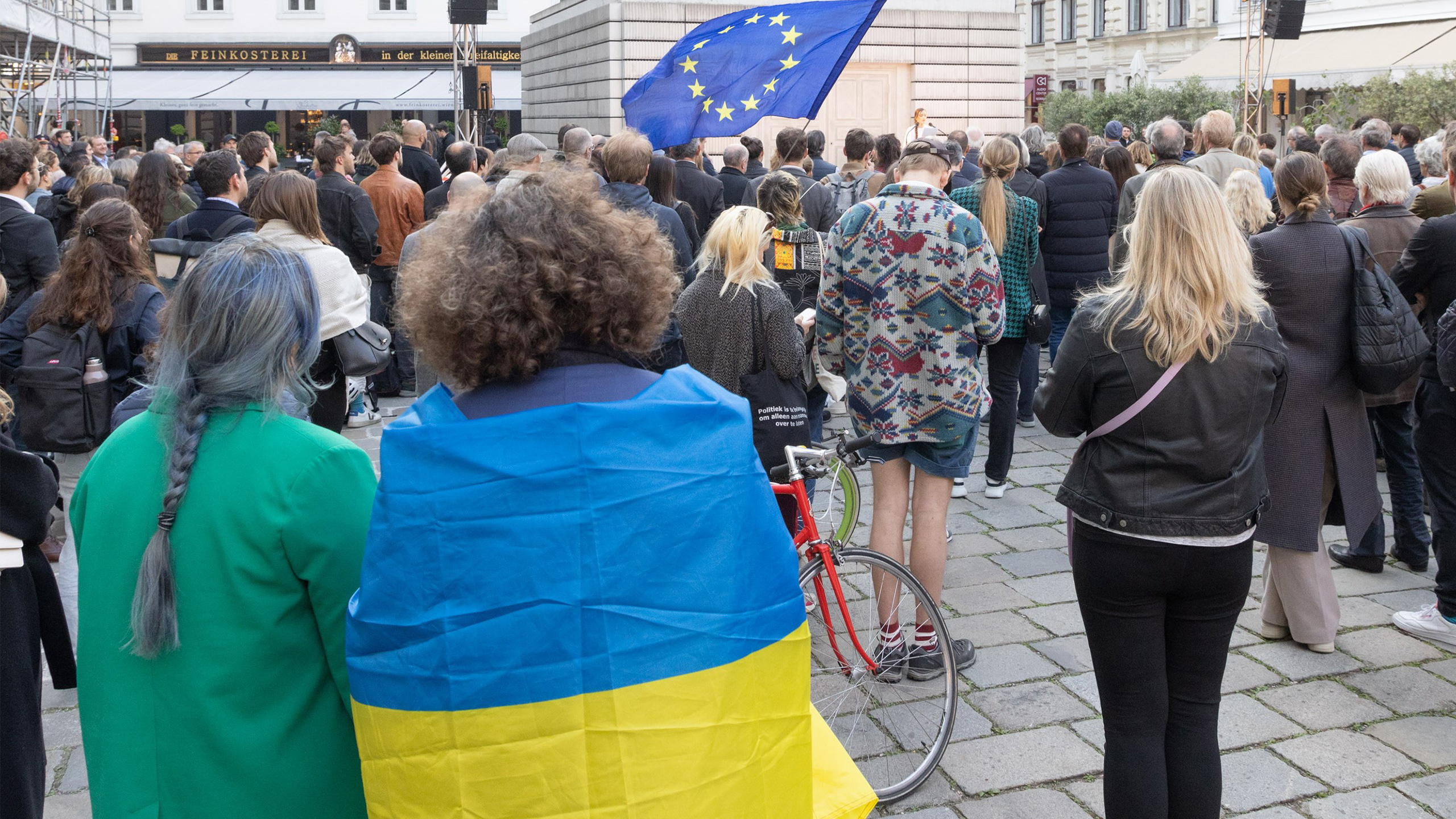Journal
December 20, 2024
Reading Time: 13'

We need profitable journalism!
Public-service journalism cannot save democracy on its own, nor can an editorial staff funded by foundations over the long term. Learn why as we discuss how the Media Forward Fund is clearing the way for innovative media to bring Germany, Austria and Switzerland out of their journalism crisis.
The subheading of Roger de Weck’s 2024 book Das Prinzip Trotzdem (Despite Everything), published by edition suhrkamp, is Why We Need to Save Journalism from the Media. De Weck used to be the editor-in-chief of German weekly newspaper Die Zeit, then he was the chief executive officer of Swiss broadcasting company SRF, and now he is a member of the Council on reform for the future for German public-service broadcasters ARD, ZDF and Deutschlandfunk. His choice of book title shows fighting spirit – and a conflict between two groups that should actually be allies: journalism and the media.
De Weck is not the only expert to detail why democracy is under threat from a side that used to be above suspicion. Toronto-based journalist Andrey Mir analysed The media after Trump: manufacturing anger and polarization in his 2020 book Postjournalism and the death of newspapers. His book comes to some unsettling conclusions.
It tells the story of a paradigm shift. One can no longer get rich with good journalism as in the twentieth century. In the attention economy, algorithms decide what pays and what does not. They calculate what could get us excited and hold our attention long enough for us to see as many ads as possible.
Of course, there are plenty of things that were profitable last century that can no longer make you a fortune today or keep your business above water. No one needs a fax machine anymore, for instance. Invisible mending is mostly a thing of the past as well, unfortunately. But journalism isn’t just another product or service.
A shaky pillar
For decades, independent journalism and independent media were considered one of the four pillars of democratic society alongside parliament, the courts and the executive. Because they looked over the shoulders of the powerful, uncovered scandals, decoded party platforms, audited corporate balance sheets, and asked tough questions about the work of special interest groups, churches, unions and industry lobbies.
Reporters informed the public when courts and public bodies made decisions on the use of public funds, for example. They also reported on local events that usually only affected a small number of people, although often in a very big way. Ideally, these media were financially and journalistically independent because they had a working business model. Printed media were sold individually or to subscribers, and their content was financed by advertising.
Digitalisation has destroyed this business model. The fourth pillar is swaying. On the internet, video has taken the lead, readers have become users, and many are satisfied with free content regardless of its quality. On top of the crisis in subscriptions has come advertising, since it has become much more efficient for marketing departments to reach specific target audiences via large platforms.
Even journalism itself is facing competition. Since opinions have become as valuable as expertise, users have become not just commenters but influencers. Anyone anywhere can publish their ideas and at a very low cost. It’s undeniable that media and journalism are going through a crisis. Yet, at a time when people are spreading barefaced lies (»fake news«) and populist propaganda, critical, fact-based reporting is more important than ever. After all, without a foundation of facts to stand on, when we share our – preferably diverse – personal views, without trusting in orderly public discourse, democracy is lost.
Funding journalism from the beginning
Since it began, ERSTE Foundation has been aware of how important critical journalism is to a functioning democracy. For example, we have been offering scholarship programmes for investigative journalists in Eastern Europe with our partner Balkan Investigative Reporting Network (BIRN) for 17 years. What started in the Balkan countries expanded into their Central European neighbours the Czech Republic, Slovakia, Poland and Hungary in 2019.
At first, we wanted to invest in people, not media. But the difficult situation of independent media, especially in Eastern Europe, became impossible to ignore. Even well-trained journalists need places to publish their work. It was for this reason that ERSTE Foundation became a founder of the European democracy fund Civitates. One of the sub-funds of this pool of European foundations has been promoting innovative media outlets from its Brussels headquarters since 2019, with a focus on countries threatened by restrictions on the freedom of the press.
Civitates typically helps relatively small media organisations that act in the public interest achieve stability and growth. But that does not do much for democracy when mass media outlets are losing their independence at the same time.
With this in mind, we decided to place our first social impact investment in Pluralis, a multi-asset fund headquartered in Amsterdam, in 2023. This fund aims to strengthen media diversity by guiding Eastern European legacy media on their way to a profitable digital future. Investment targets include profitable legacy media that are in danger of being acquired by actors that are no longer willing or able to guarantee journalistic independence.
»Independent, critical journalism is of fundamental importance for our democracy. In this acute media crisis, I want to work with renowned foundation partners, philanthropists and impact investors to create more sustainable business models for journalism in future.«
Martin Kotynek, Founding Director of the Media Forward Fund
Austria’s media ecosystem can flip
However, this type of investment in media via concentrated, impact-orientated foundation capital is not feasible in mature markets. That’s because countries like Germany, Austria and Switzerland are not threatened by media capture (owners influencing coverage in favour of their own interests) but by the difficult economic situation they find themselves in, which we described above. It could be argued that this problem is particularly bad in Austria because this country has been providing generous public funding to media outlets for years without necessarily requiring much from them in the way of quality, and the Austrian media have gotten accustomed to this privileged position.
Yet they are not rewarded for being innovative but for their reach, which should make them profitable, after all. Investigative portals and new digital-first platforms, by contrast, often do not receive any funding at all. Yet they are the ones who need assistance given that they receive very little advertising revenue and that they often have as much trouble getting subscribers as start-up financing at the early stages. Experts describe the state of independent media in Austria as problematic.
Against this backdrop, the Media Forward Fund fills a major funding gap in Austria and supplements the funds Pluralis und Civitates, which do not invest in Austria, in ERSTE Foundation’s portfolio of media programmes. ERSTE Foundation is now one of the four partners and a cofounder of the Media Forward Fund along with Germany’s Schöpflin Foundation, Switzerland’s Mercator Foundation and impact investor Karma Capital.
This pooled fund comprised 20 international foundations as of late 2024. New members include foundations from Germany and Switzerland, Austria’s DATUM Foundation for Journalism and Democracy, and the renowned MacArthur Foundation and Knight Foundation from the United States. They are all helping preserve a healthy media ecosystem for the three main German-speaking countries.

Up to EUR 400,000 for a good business model
The objective is clearly defined. The Media Forward Fund promotes high-quality independent media with sound business models that publish strong, trustworthy content and are capable of sustainably funding themselves over the long term. There is a special focus on media that fill reporting gaps at the cross-regional and national level and in thematic niches, media that close reporting gaps at the regional and local level (sometimes called news deserts), and media that target underserved audiences.
Small media outlets with up to 30 staff members can receive organisational funding or they can collaborate on projects, depending on whether they are non-profit organisations or for-profit organisations that act in the public interest. A funding volume of up to EUR 400,000 is typically provided for two years. Large media outlets are eligible too if they fund half of the project themselves. The fund is open to projects that are »past the idea phase«, meaning as soon as they have a business plan and ideally an initial product-market fit. An independent jury primarily evaluates the funding’s potential for transforming the company, whether the company’s business model is likely to be sustainable now and in future, its scalability, and whether the changes the funding would enable will endure after the funding ends.
Democracy does not work without a well-functioning media market
That is to say, the fund aims to make the media outlets it supports profitable enough to support themselves over the long term. After all, we urgently need profitable media if we are going to have a healthy media ecosystem and, by extension, a stable democracy. Otherwise, it won’t be long before our independent media outlets disappear, and we are left with algorithm-based, AI-driven fake news generators on American, Russian or Chinese platforms determining what news we can and cannot read.
Of course, the government could fund non-profit journalism. However, as important as well-functioning public-service media are, quality journalism in all its many colours cannot be left to the state alone if journalists are to live up to their role as watchdogs. We saw an example of how vulnerable the media are when they rely on public funding in early 2025 during the failed negotiations between the Freedom Party of Austria and the Austrian People’s Party. Those negotiations showed that when rigorous media policy becomes a tool of party policy, freedom of the press and factual accuracy suffer.
In Slovakia, on the other hand, critical media like SME (part of the Pluralis portfolio) and Dennik N can only continue to assert themselves because they do not depend on public funding. This is why there needs to be a functioning private market for the media. For such a market to exist, the media need to adapt to the needs of consumers and find coherent business models. The Media Forward Fund exists to support the most promising of them.
Pooled funds as a funding instrument for foundations
Pooled funds like Civitates and the Media Forward Fund are a very sensible tool for non-profit foundations to fund media. Direct support is often not an option or even a desired goal for either side. As a private savings bank foundation under Austrian law, ERSTE Foundation, for example, is only permitted to fund non-profit organisations and invest in social impact funds. That isn’t very helpful when the aim of funding is to help media become more profitable. On the other hand, there are often conflicts of interest and reputational risks to consider. The foundation can be negatively affected if it supports a media outlet that makes a mistake. In addition, media outlets that depend on external funders run the risk of losing credibility with their readers.
Pooled funds create a protective firewall in this regard, and foundations can fund them without violating their bylaws since these funds are non-profit organisations. Furthermore, they provide the human resources and independent panels of experts that ensure calls for proposals are processed fairly and with maximum professionalism. Foundations cannot influence the Media Forward Fund’s funding decisions. This is another way to allay suspicions of reporting interference.
Despite these advantages, many foundations still hesitate to get involved in funding media outlets that act in the public interest. This is unfortunate, because every charitable foundation should have an interest in preserving a well-functioning media landscape. After all, if we lose the media, where will the public debate happen on the core topics that educational foundations, cultural foundations and environmental foundations pursue?
Results of the first call for proposals in 2024
136 media companies took part in the Media Forward Fund’s first call for proposals in the summer of 2024. Of those, 57% were from Germany, 26% were from Switzerland and 17% were from Austria. The selection process consisted of several phases. In the end, ten organisations were invited to go to Berlin to present their proposals to the independent panel of judges. A total of EUR 1.49 million went to the four winning organisations. Two of them are from Switzerland, and two are from Austria.
As the city magazine for Zurich, Switzerland, Tsüri has been writing for a mostly young audience for more than ten years. The Media Forward Fund marked the start of its collaboration with the publication with a financial contribution of EUR 400,000. The money will be used to hold workshops and create prototypes to discover how a hyperlocal niche topic can enlarge the sales channel to win new members.
Swiss investigative journal Reflekt, based in Bern, has been uncovering wrongdoing and making an impact in society for more than five years. It will receive EUR 300,000 in funding. The journal hopes to broaden its sales channels, or funnel, by working with well-known hosts to make its investigative research available as social videos. The goal here is to turn users who show an interest in the videos into paying supporters via crowdfunding.
Media company andererseits from Vienna, Austria is receiving EUR 400,000. It has been publishing a print magazine, two newsletters and research by people with and without a disability since 2022 in an inclusive community-based editorial staff. The company hopes to enlarge its sales channels with a subscription model centred around topic-specific newsletters for Austria’s underserved community of disabled people. The same year in which it was founded, andererseits made a highly publicised documentary about a fundraising campaign organised by Austrian national public broadcaster ORF. ERSTE Foundation was a co-sponsor of the documentary.
Austrian investigative magazine Dossier is also based in Vienna. It has no advertising and has been reporting on corruption, exploitation and abuses of power for more than twelve years. Dossier will use the EUR 390,000 it is receiving to enlarge its funnel and convert readers into subscribers by bringing investigative research to the stage. ERSTE Foundation once supported the magazine by funding an edition focussing on the important topic of caregivers. We are delighted to be providing structural support for Dossier now through the Media Forward Fund.
The independent jury comprised five experts from Germany, Austria and Switzerland who brought an international perspective and a variety of expertise: Yves Daccord (journalist, former director general of the International Committee of the Red Cross, investor in Le Temps and Heidi News), Maria Exner (founding director of Publix/Berlin, former editor-in-chief of ZEIT-Magazin), Evelyn Hemmer (COO of Hashtag Media, founder of Wiener Medieninitiative), Lucy Küng (senior research associate at Reuters Institute for the Study of Journalism at the University of Oxford, member of the supervisory board of Neue Zürcher Zeitung) and Eva Schulz (YouTuber, podcaster, founder of Deutschland 3000).
Cover image: Photo by Roman Kraft on Unsplash



